The views expressed in our content reflect individual perspectives and do not represent the authoritative views of the Baha'i Faith.
She is young. She is talented. She is passionate. But more than this, she has captured the ethos of the moment we live in. She is, of course, 22-year-old Amanda Gorman, the youngest inaugural poet in United States history.
RELATED: Black Women, Poetry and Radiance
Gorman made herself known to America as a new president was sworn into office — and in the wake of the nation remembering the legacy of Dr. Martin Luther King Jr., who would have celebrated his 92nd birthday on January 15, 2021. The words she performed as she began her time on the national stage have much in common with King’s last written words. Both are saturated pain and hope.
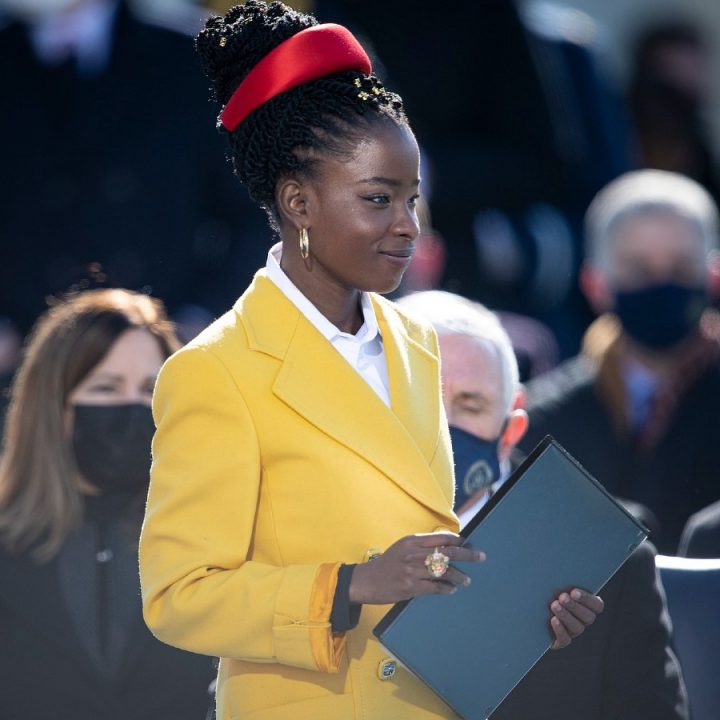
Gorman writes and performs her poetry at a time when the world’s attention is focused on racial injustice and political vulnerability. King’s final book, “Where Do We Go from Here: Chaos or Community?” was published in 1967, the year known as the “long hot summer” because of the 150-plus incidents of unrest sparked by unemployment, abusive policing, and poor housing in the Black community.
RELATED: World Brotherhood — and Dr. King’s Most Controversial Speech
I remember those explosive times well — I was a fearful Black child living in the South. Now, with the benefit of time and diverse experiences — I currently live in Northern California — clarity has replaced fear, and I see a divine purpose at work in our world’s troubles. I’ve been reflecting on how King and Gorman’s work fits into my Baha’i-inspired understanding of the moment we find ourselves in at this time — a moment when, the Baha’i Writings explain, “For the first time in history it is possible for everyone to view the entire planet, with all its myriad diversified peoples, in one perspective. World peace is not only possible but inevitable.”
In “Where Do We Go from Here?” King notes the progress of the previous decade, during which significant laws and court decisions guaranteed certain legal rights for African Americans, such as Brown v. Board of Education (1954), Gideon v. Wainwright (1963), Heart of Atlanta v. United States (1964), the Civil Rights Act of 1964, the 24th Amendment (1964), and the Voting Rights Act (1965). King described these achievements as only a phase in the struggle for civil rights. This phase, he wrote, allowed African Americans to be treated with dignity. It did not give them equality. But, he added, this should not be the cause of despair, but rather a recognition that the journey to equality was entering a different phase, requiring different tools.

“Failing to understand this as a normal process of development, some Negroes are falling into unjustified pessimism and despair,” Dr. King wrote. “Focusing on the ultimate goal, and discovering it still distant, they declare no progress at all has been made.”
These sentiments are echoed in Gorman’s inaugural poem, “The Hill We Climb,” written more than 50 years later, as African Americans still struggle for true equality. Gorman references the “never-ending shade” and experiences in “the belly of the beast.” But, she says, “dawn is ours” and “we’ve weathered and witnessed a nation that isn’t broken but simply unfinished.”
King, in “Where Do We Go from Here?” provides a vivid description of the brutal oppression experienced by those who would become known as African Americans in the land they first encountered in 1619. He gives particular emphasis to the injustices of his present time. But he ends that part of the book with these words:
“… there is a need for a radical restructuring of the architecture of American society. For its very survival’s sake, America must reexamine old presuppositions and release itself from many things that for centuries have been held sacred. For the evils of racism, poverty and militarism to die, a new set of values must be born.
… Let us, therefore, not think of our movement as one that seeks to integrate the Negro into all the existing values of American society. Let us be those creative dissenters who will call our beloved nation to a higher destiny, to a new plateau of compassion, to a more noble expression of humaneness.”
Gorman’s poetry alludes to our country’s injustices, using words like “grieved,” “hurt,” and “tired,” but also provides these words of hope:
So let us leave behind a country
better than the one we were left with
Every breath from my bronze-pounded chest,
we will raise this wounded world into a wondrous oneWe will rise from the gold-limbed hills of the west,
we will rise from the windswept northeast
where our forefathers first realized revolution
We will rise from the lake-rimmed cities of the midwestern states,
we will rise from the sunbaked south
We will rebuild, reconcile and recover
and every known nook of our nation and
every corner called our country,
our people diverse and beautiful will emerge,
battered and beautiful
Both King and Gorman have captured some of the spirit of the age we live in — an age during which we are beginning the process of creating a new world order, a restructured civilization. It is an age in which the ills of society, as explained by the Universal House of Justice, the democratically-elected international governing body of the Baha’is, must “be supplanted by the establishment of just relationships among individuals, communities, and institutions of society that will uplift all…”
In a struggle, they wrote, that we are certain will ultimately end with “a just, diverse, and united society” that “manifest(s) the oneness of the human family,” there have and will be “times of trial and promise, of hardship and progress, of anguish and joy.”
Throughout the early and mid-20th century the Baha’is in the United States experienced times of anguish during which the community intensely struggled to free itself from the racial prejudice it absorbed from the society around it. The community’s efforts to overcome this prejudice were recognized by Ebony magazine writer Lerone Bennett, Jr. in 1965.
In his article titled, “Baha’i: A Way of Life for Millions,” Bennett wrote:
… the Baha’i principle has been extraordinarily effective in shattering the barriers between men. Stressing the importance of practical improvements in the social conditions of men, Baha’is have been very active in the fight against prejudice. They teach generally by demonstrating, for it is an article of their faith that deeds are more powerful than words.
Within Baha’i communities, Negroes and whites, men and women, Asians, Africans and Europeans stand on a basis of absolute equality. Believers, moreover, are enjoined to take their creed seriously, even to the point of marriage. American Negroes play a highly important and highly visible role in Baha’i communities, not only as members of local and national assemblies but also as human beings who interact with other members of the faith on a human and non-racial level.
But just as the civil rights successes of the late 1950s and early 1960s did not reach the goal of complete equality, the successes of the Baha’i community in the 20th century did not bring about a universal understanding of the oneness of humanity and a transformation of our society’s “biased norms and social systems.” And now in the 21st century, the Baha’i community still strives to embody the words found in the Baha’i Writings, that “the power of the Kingdom will bind these two [races] in friendship, and serve them as a healing balm.”
To make significant progress, we need a new approach. And we can’t do this alone. Baha’is often invite our neighbors into our community building activities and social action projects as active participants, to multiply the efforts toward unity within our communities and to put into practice high ideals. We will make more rapid progress when we better appreciate, as the Universal House of Justice wrote, that “the power to transform the world is effected by love,” not “contest or conflict,” either physical or intellectual. We are propelled forward by efforts to comprehend and put into practice teachings that allow us to be “channels for this divine love” in God’s plan to unite the world.
Finally, our success rests with fully grasping that “It is not possible … to effect the transformation envisioned by Baha’u’llah merely by adopting the perspectives, practices, concepts, criticisms, and language of contemporary society.” In King’s words, we must be “creative dissenters.”
We all have the opportunity to be involved in this process, which requires us to try things we will believe will work, make mistakes, and try again. Baha’is seek to follow the Universal House of Justice’s guidance to “be distinguished by maintaining a humble posture of learning, weighing alternatives in the light of [Baha’u’llah’s] teachings, consulting to harmonize differing views and shape collective action, and marching forward with unbreakable unity in serried lines.”
It is up to each of us to find our way towards justice and unity. Baha’is do this within the wide canopy of this framework for action, just as Martin Luther King, Jr. found his way, and Amanda Gorman is finding hers. As she said in the last stanza of her inaugural poem:
The new dawn blooms as we free it
For there is always light,
if only we’re brave enough to see it
If only we’re brave enough to be it
You May Also Like
Comments



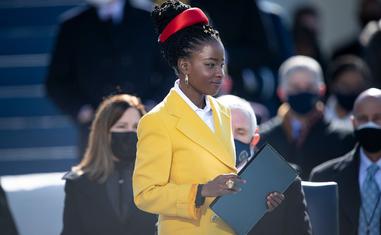
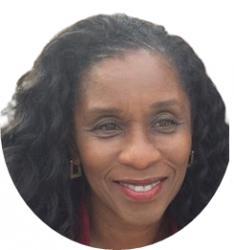
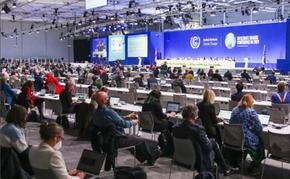
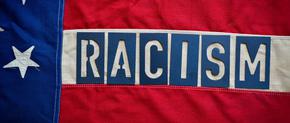










Thank you for this article. I was also, while on the other side of the world, moved by this poem.
if only we’re brave enough to see it
If only we’re brave enough to be it“
The truth spoken in love can change the world.